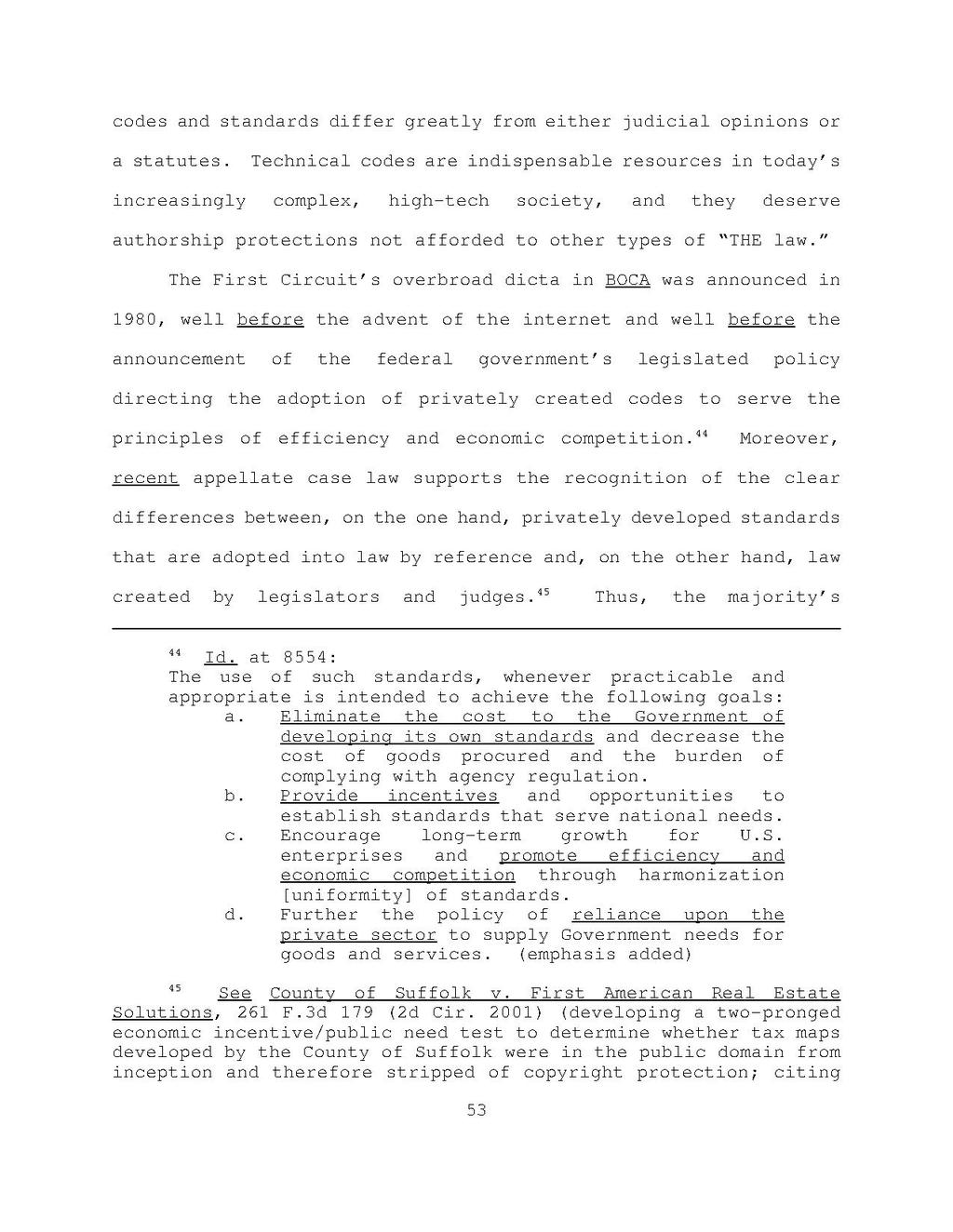codes and standards differ greatly from either judicial opinions or a statutes. Technical codes are indispensable resources in today's increasingly complex, high-tech society, and they deserve authorship protections not afforded to other types of "THE law."
The First Circuit's overbroad dicta in BOCA was announced in 1980, well before the advent of the internet and well before the announcement of the federal government's legislated policy directing the adoption of privately created codes to serve the principles of efficiency and economic competition.[1] Moreover, recent appellate case law supports the recognition of the clear differences between, on the one hand, privately developed standards that are adopted into law by reference and, on the other hand, law created by legislators and judges.[2] Thus, the majority's
- ↑ Id. at 8554:
The use of such standards, whenever practicable and appropriate is intended to achieve the following goals:- Eliminate the cost to the Government of developing its own standards and decrease the cost of goods procured and the burden of complying with agency regulation.
- Provide incentives and opportunities to establish standards that serve national needs.
- Encourage long-term growth for U.S. enterprises and promote efficiency and economic competition through harmonization [uniformity] of standards.
- Further the policy of reliance upon the private sector to supply Government needs for goods and services. (emphasis added)
- ↑ See County of Suffolk v. First American Real Estate Solutions, 261 F.3d 179 (2d Cir. 2001) (developing a two-pronged economic incentive/public need test to determine whether tax maps developed by the County of Suffolk were in the public domain from inception and therefore stripped of copyright protection; citing
53
